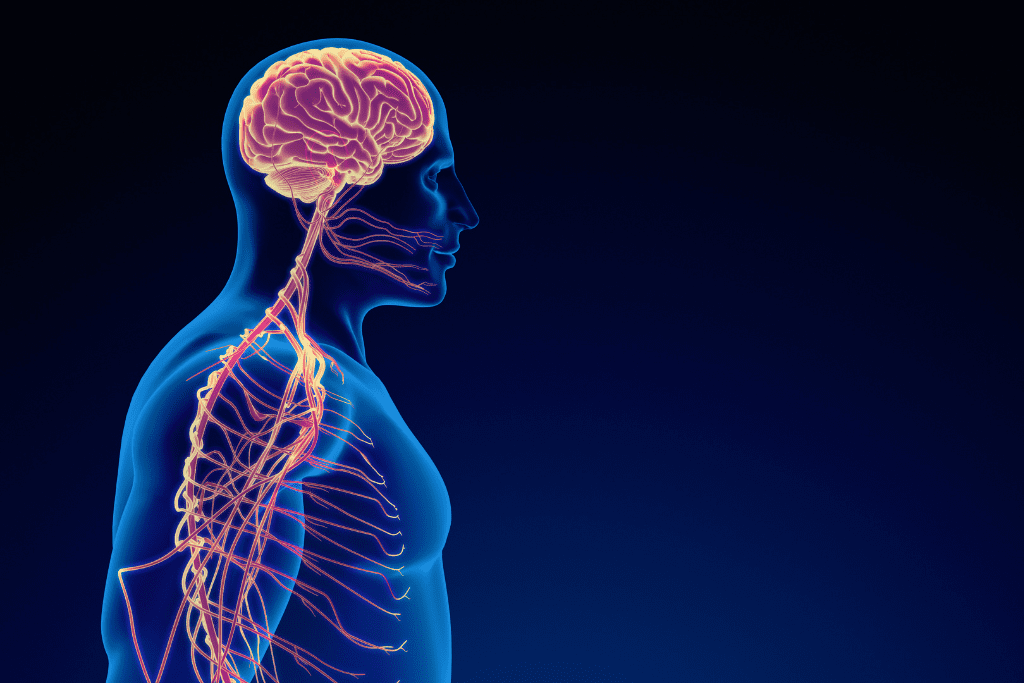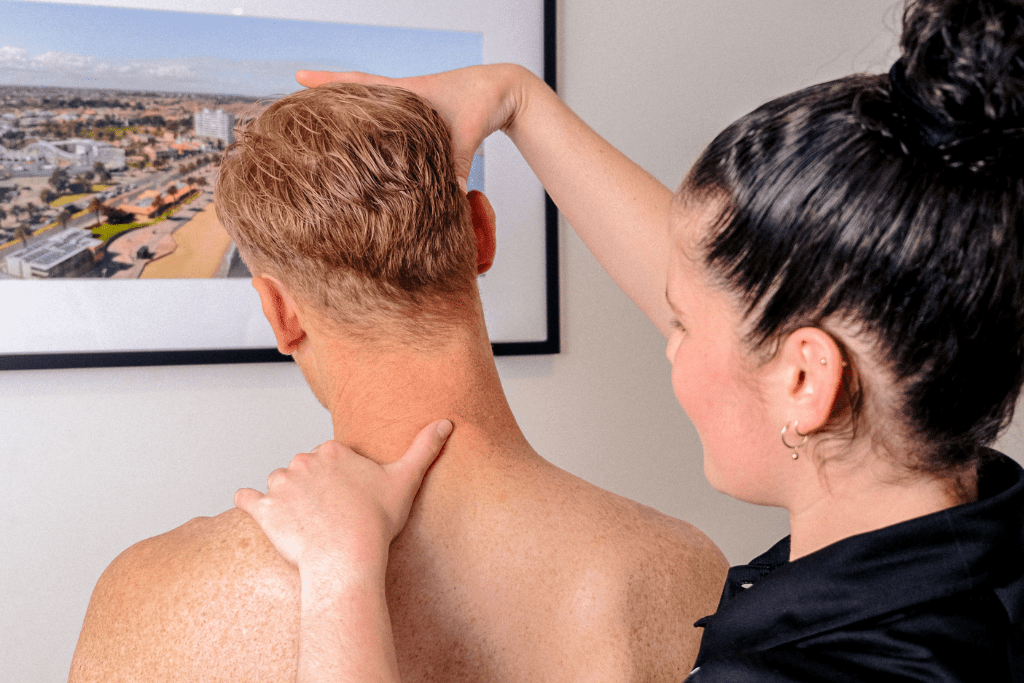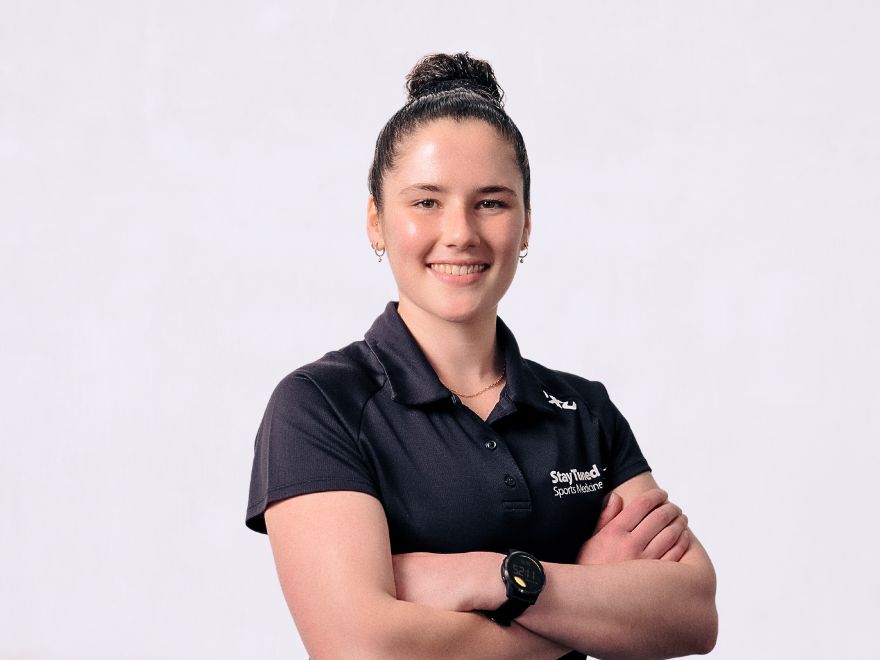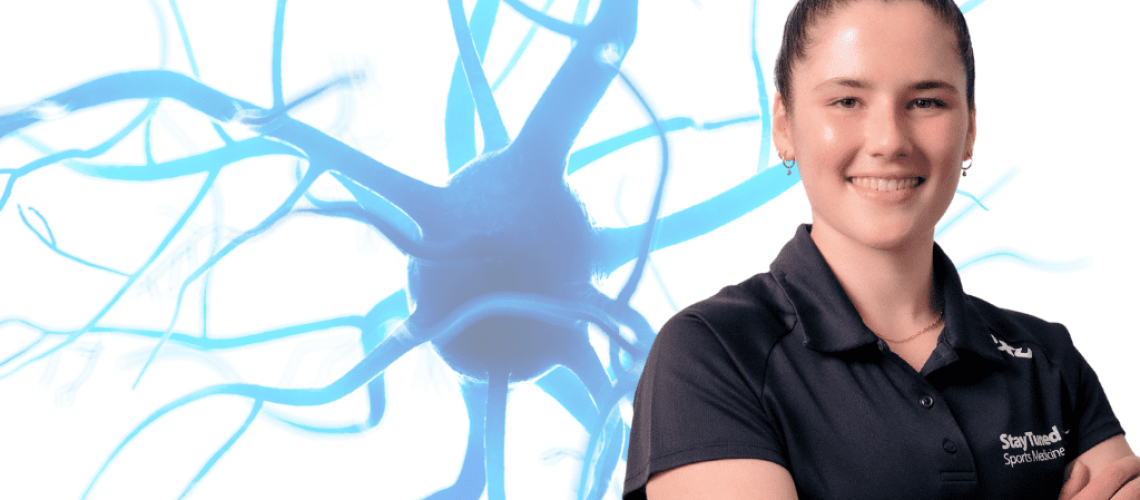Life today often feels like a nonstop race. We juggle work, family, and countless distractions, rarely pausing to catch our breath. Because of this, many of us feel anxious, tired, or on edge without really knowing why. As osteopaths, we see these feelings as closely tied to your autonomic nervous system – especially the two main parts called the sympathetic and parasympathetic nervous systems.
These systems work mostly behind the scenes, controlling things you don’t think about, like your heartbeat and digestion. When they’re in balance, you feel physically and emotionally well. When they’re out of whack, it can cause all sorts of problems. Osteopathy uses hands-on techniques to help bring this balance back, supporting both your body’s structure and your nervous system.
What is the Autonomic Nervous System?
Your autonomic nervous system (ANS) controls all the automatic stuff your body does, like breathing, heart rate, digestion, and blood pressure. It has two sides:
- The sympathetic nervous system (SNS) – this is your body’s “fight-or-flight” response.
- The parasympathetic nervous system (PNS) – this helps you “rest and digest.”
Normally, these two work together keeping your body balanced. But if the sympathetic side stays turned on too long, it can cause stress-related health problems, as shown in a recent 2025 PeerJ review (Sundas et al., 2025).
The Sympathetic Nervous System: Your Body’s Stress response
The sympathetic nervous system is like pressing the accelerator when you’re stressed or need to act fast. This is great when you’re exercising or facing an emergency. But when it’s switched on all the time, it can wear you down.
Signs of chronic sympathetic activation include:
- Fast or shallow breathing
- Tight muscles, especially in your neck, shoulders, and back
- A racing heart and high blood pressure
- Stomach problems like bloating or IBS
- Trouble sleeping
- Feeling anxious or easily irritated (Greenlund and Carter, 2022; Hart et al., 2025; Karatsoreos et al., 2021).
Over time, this constant “on” mode can affect your heart health, hormones, and ability to recover from stress (European Psychiatry, 2025).

The Parasympathetic Nervous System: Your Body’s recovery mode
The parasympathetic nervous system helps your body relax and recover after stress. It slows your heart rate, helps you digest food, improves sleep, and supports healing.
Many people, especially those dealing with long-term stress or poor posture, don’t spend enough time in this calming state. This can lead to:
- Trouble relaxing
- Poor sleep quality
- Slow digestion
- Taking longer to recover from stress or exercise
- Feeling tired even after resting (Casement et al., 2021; Fagundes et al., 2018).
Research shows that chronic stress can reduce parasympathetic activity, letting the sympathetic system take over, which can cause digestive issues, weaker immunity, and slower healing (Smith et al., 2023). Lifestyle changes like stress management, better posture, and deep breathing can help restore this balance (Casement et al., 2021).
How Osteopathy Can Help Balance Your Nervous System
Osteopaths use gentle, hands-on techniques to ease muscle tension and improve your postural awareness, which supports better nervous system function.
Treatments might include:
- Soft tissue work to loosen tight muscles
- Gentle joint movements to improve flexibility
- Cranial techniques that gently influence your nervous system to promote calm
- Guidance on breathing and posture to encourage relaxation and parasympathetic activation
By reducing physical stress and improving alignment, osteopathy helps your body move out of “fight-or-flight” mode and into a calmer, more balanced state.

Easy Ways to Boost Your Parasympathetic Nervous System at Home
Along with osteopathic care, your daily habits matter a lot. Try these tips to help your body relax:
- Breathe deeply into your belly with long, slow exhales
- Move gently with activities like walking, yoga, or tai chi
- Practice mindfulness, meditation, or simply take quiet moments
- Prioritize good sleep habits
- Spend time with loved ones, pets, or in nature
- Take short breaks throughout the day to reset
When to Seek Extra Help
If stress, sleep issues, digestion problems, or mood struggles persist despite lifestyle changes, it’s important to get professional support. Your osteopath can refer you to other experts like:
- General practitioners (GPs)
- Dietitians
- Psychologists or mental health professionals
- Naturopaths or integrative health practitioners
We work together to make sure you get the care you need.
Final Thoughts
Stress is part of life, but you don’t have to stay stuck in “fight-or-flight.” Osteopathy offers a whole-body, hands-on approach to help you relax, recover, and build resilience. By tuning into your body’s signals and supporting your nervous system with treatment and good habits, you can live with more energy, ease, and emotional balance.
Dr Emily Sandman
Osteopath & Group Exercise Rehab Instructor
E: Emily.Sandman@staytuned.com.au

References
Casement, M.D., et al., 2021. Brain structure and parasympathetic function during rest and stress in young women. NeuroImage, 241, p.1184. Available at: https://link.springer.com/article/10.1007/s00429-021-02234-7 [Accessed 30 July 2025].
European Psychiatry, 2025. Complex sympathetic arousal during negative emotional stress. European Psychiatry. Available at: https://www.cambridge.org/core/journals/european-psychiatry/article/complex-sympathetic-arousal-during-negative-emotional-stress/1FB5A9DC34FF652BF1595873CC1B87CA [Accessed 30 July 2025].
Fagundes, C.P., et al., 2018. Emotion regulation, parasympathetic function, and health. Frontiers in Psychology, 9, p.879166. Available at: https://www.frontiersin.org/journals/psychology/articles/10.3389/fpsyg.2022.879166/full [Accessed 30 July 2025].

